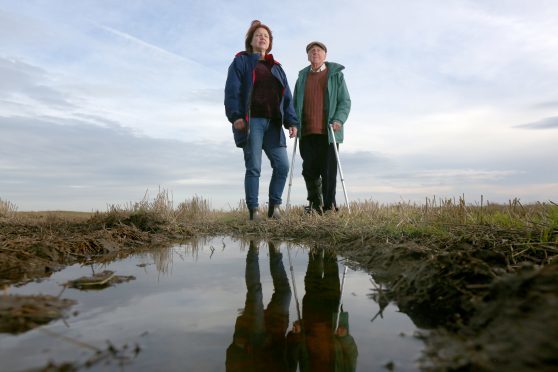The University of St Andrews has been urged to ditch plans for a wind farm following another setback for the decade-old project.
Campaigners against Kenly wind farm claim the “major industrial installation” in countryside near St Andrews would blight surrounding communities.
A Scottish Government-appointed reporter asked to grant planning permission for underground cabling declined to deal with a university appeal due to an invalid certificate.
The obstacle is the latest for the scheme to erect six turbines, a key element of the university’s ambition to become the UK’s first carbon neutral campus.
However, the university insisted it remains committed to its strategy of creating its own energy, 10 years after discussions began about erecting turbines at Upper Kenly Farm, near Boarhills.
Planning permission was sought for the turbines in 2011 and approved on appeal in 2013.
However the 328-feet high structures cannot be built until agreement is reached with the Ministry of Defence on mitigating interference with air traffic control radar at Leuchars.
Additional planning consent is required for the 33,000 volt cable the university wants to run nine miles from Kenly to St Andrews on a circuitous route via Stravithie, Lathockar and the A915.
Graham Lang, of Kenly Landscape Protection Group, said: “The university should call time on this ill-fated project.
“After six years, local residents, businesses and communities deserve relief from the stress and blight of a major industrial installation appearing on their doorstep.”
East Neuk and Landward Conservative councillor Linda Holt said: “The university has given this project its best shot, investing far more than any private developer could have afforded, and it’s time to recognise that Kenly is the wrong place for a wind farm.
“The project has caused a lot of grief and pain locally, and dropping it now would give the university a chance to build more constructive relationships with communities in the Neuk.”
In the university’s appeal a certificate stating it had taken all reasonable steps to identify landowners along the intended cable route was deemed invalid.
Reporter David Russell stated the notification failure resulted from “apparently avoidable and unexplained negligence”.
A university spokesman said: “We’re considering the reporter’s findings carefully, however the university remains fully committed to our strategy of reducing our carbon footprint, decreasing our reliance on external energy providers and protecting local jobs.”










